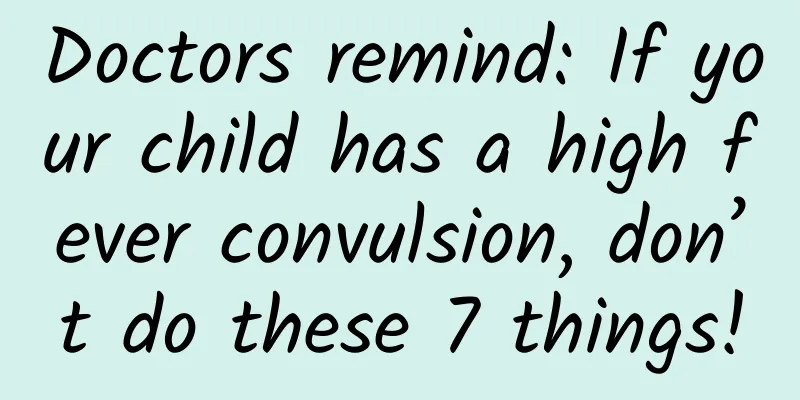[Psychiatrist's Essay] With continued treatment, she is getting better day by day
![[Psychiatrist's Essay] With continued treatment, she is getting better day by day](/upload/images/67f0f94263fa6.webp)
|
This is the 5150th article of Da Yi Xiao Hu Editor's Note In recent years, the outpatient clinics of child psychiatry have been overcrowded and have attracted much attention from all walks of life. Pediatricians have also seen more children who committed suicide or self-harmed due to psychological disorders in the emergency room, and often sigh for those children who are physically well-developed but whose lives are destroyed by psychological suffering! In order to fulfill the original mission of "protecting children's health and improving the quality of life", pediatrics must adapt to the needs of the times and pay more attention to protecting children's mental health. Xu Gailing, chief physician of the Department of Psychiatry and Psychology of Tianjin Mental Health Center, has many years of experience in the diagnosis and treatment of children's mental illness and has published many related research papers. The "Doctor-Patient Heart Bridge Magazine" specially invited her to join as deputy editor-in-chief to write "Psychiatrist Essays", share diagnosis and treatment experience and the process of doctor-patient spiritual communication, and popularize how to "start pediatric graded diagnosis and treatment from the family" in protecting children's mental health, help children's parents to correctly understand and face it scientifically, and strive to achieve early detection, early intervention, and early treatment, so that the physical and mental health development of children and adolescents has a better future. In September this year, when the school term started, a girl's mother suddenly contacted me, very anxious, saying that her child was in trouble and was afraid to enter the classroom, and asked me if I could help her through video. During the video, the girl was squatting in a corner of the toilet crying. I saw that she was panicked and terrified, with tears streaming down her face. She was a little evasive in the video. She is 15 years old and is one of my outpatients. She has been treated for nearly 2 years, with her condition fluctuating from time to time. It has been basically stable in the past six months, with occasional fluctuations, but she can adjust on her own. This summer, she was admitted to school as she wished. During the holidays, her condition was stable, and I reduced her medication a little. We know that adolescent-onset psychiatric patients are relatively difficult to treat. They are in the process of growth and development, and at the same time face learning and interpersonal pressures. Fluctuations and relapses in their condition are common during treatment. Many people stop receiving treatment and the condition recurs after a long time. Although the treatment of adolescent mental illness is difficult, most families and doctors are unwilling to give up. Doctors and patients grope forward together and meet challenges head-on. There are ups and downs in the process. Although I know all this, to be honest, when I was video chatting with this girl, I felt a little desperate. She finally got better, was admitted to school, and has been stable recently. She was especially good during this holiday. Why did she relapse again... This patient is from another place. She became ill in the first year of junior high school. She was depressed, lazy, had suicidal thoughts and behaviors, had no motivation, and complained that her "brain was not working", occasionally had auditory hallucinations, could not concentrate on studying, and was irritable, nervous, irritable, overeating, self-harming, and extremely emotionally unstable. She could not go to school, could not study, and dared not go out. They treated her locally for 1 year, but the symptoms did not change. Probably due to the use of antidepressants, the child's overeating symptoms became more serious. Since they could not be cured locally, they went to Tianjin. Their family was not rich, but they were willing to spend money and energy on their child. At first, they lived in a hotel for treatment. Later, when they felt better, they insisted on coming once a month. Every time they came to the outpatient clinic, they brought a lot of bags and rushed to the hospital. This is actually a gentle and well-behaved girl, and she is quite smart, but she is sick. When she first came to the hospital, she was bloated, 1.6 meters tall, weighing more than 140 kilograms, with a bewildered face and multiple scars of self-harm on her body. This disease can destroy everything, including beautiful feelings, making you unable to love and unable to feel love. It not only deprives you of your health, but also deprives you of the world and isolates you from the human warmth you used to love. Her parents are both conscientious and honest workers. In their eyes, there is deep love and concern for their children, but also hidden helplessness and sentimentality. I asked her the reason for this attack. She no longer had hallucinations and delusions, but she was nervous and afraid. These nervous fears that she couldn't explain clearly made her tremble all over, shiver, and dare not see people, dare not go into the classroom, dormitory to see classmates and teachers. She also knew that her teachers and classmates had no problem with her, but she just couldn't control her emotions and physical state. She felt that she was facing a catastrophe, which made her more suffocated and nervous than facing someone who wanted to kill her, so she hid in the bathroom to contact her mother. I was familiar with her and she trusted me more. I explained her condition to her and she listened. I told her why this happened and analyzed it for her. She listened attentively and slowly relaxed. I asked her to take a deep breath, she did, and immediately took a pill of a medicine she had in her hand. Finally, I increased her medication dosage. She was well again soon. I was worried that her condition would fluctuate again after she entered school, but she was getting better and better afterwards. A few days ago, her mother told me that she is doing very well now. She is getting better slowly. She is not so fat anymore and is much more optimistic. Because of her good performance, her classmates chose her to be the monitor, but she refused because she was afraid of the pressure and she could not bear it. She only became a small class leader. Children's resilience always exceeds our imagination. As I have said many times: Persistence is victory. There is no other way but to persist in treatment! ...If you can get through it, you will see a different sky! I told her mother: Don't change the dosage for now. Come to the hospital next time you want to reduce the dosage. I will see her condition and then reduce it. Disease Explanation Psychiatric diseases often change throughout the course of the disease, presenting different states at different stages, so the diagnosis of mental illness is more cautious and is generally made after a consultation. This patient did not have a consultation, and based on her clinical symptoms and her response during treatment, I gave her a preliminary diagnosis of bipolar disorder. Bipolar disorder is a common psychiatric disease, which usually starts in adolescence. However, the early symptoms are often atypical, and most of the cases are caused by depression. This patient is one of them. When the disease first started, he had obvious anxiety and depression, but no obvious emotional upsurge. During the course of the disease, he gradually developed emotional instability, irritability, irritability, overeating, psychotic symptoms, and occasional auditory hallucinations. Antidepressants have a poor therapeutic effect. The main symptoms of bipolar disorder in adolescence are emotional instability, anxiety, depression, and irritability. There is often an impulse to hurt oneself, and some patients (research data shows about 35%) have anxiety attacks. In early treatment, it is easy to be regarded as a depressive disorder and treated with antidepressants. Some patients will become excited, anxious, or even manic and agitated under antidepressant treatment. Therefore, for patients with onset in adolescence and accompanied by psychotic symptoms, the use of depressants needs to be cautious. Author: Department of Psychiatry and Psychology, Tianjin Mental Health Center Xu GailingChief Physician Reviewer: Department of Pediatrics, Qingpu Branch, Zhongshan Hospital Affiliated to Fudan University Xu LingminChief Physician |
<<: "Dryness, itching and pain" in elderly women
>>: The Miracle of Water Purification: Where Do the Heavy Metal Ions in Water Go?
Recommend
Breastfeeding dizziness and tinnitus
Many people do not feel well during breastfeeding...
Pubic lice egg eradication method
Pubic lice is a very terrible disease. It is high...
Should I use glass or shower curtain for shower partition? Why is dry and wet separation popular now?
I don't know since when, the bathroom decorat...
What are the disadvantages of girls sleeping late?
Modern people generally want to stay up late beca...
What is the reason why menstrual blood turns black?
I believe that menstruation is not unfamiliar to ...
What does heavy hair on a woman mean?
For women, if they have heavy body hair, there ar...
The most effective whitening method
Skin whitening is the focus of beauty for most As...
What are the exercises for female vaginal tightening?
Women are a relatively special group because they...
How long after giving birth can I breastfeed?
Breastfeeding is a feeding method chosen by many ...
The more vitamins you take, the better? Be careful, eating too much can also lead to liver failure
Now more and more young people are beginning to p...
Was the Analects written by Confucius? What style of writing is it?
The Analects is the crystallization of the collec...
What to do if your skin becomes loose after giving birth
Many female friends become insecure about their f...
Ovulation period, body temperature 37 degrees for 8 days
Women not only experience physical discomfort dur...
GWI Social: Facebook still leads, other social media platforms are growing
According to GWI Social, a new report provides a ...
Do children need to get the flu vaccine every year? When is the best time to get the flu vaccine for babies?
For children's flu vaccine, getting it every ...









